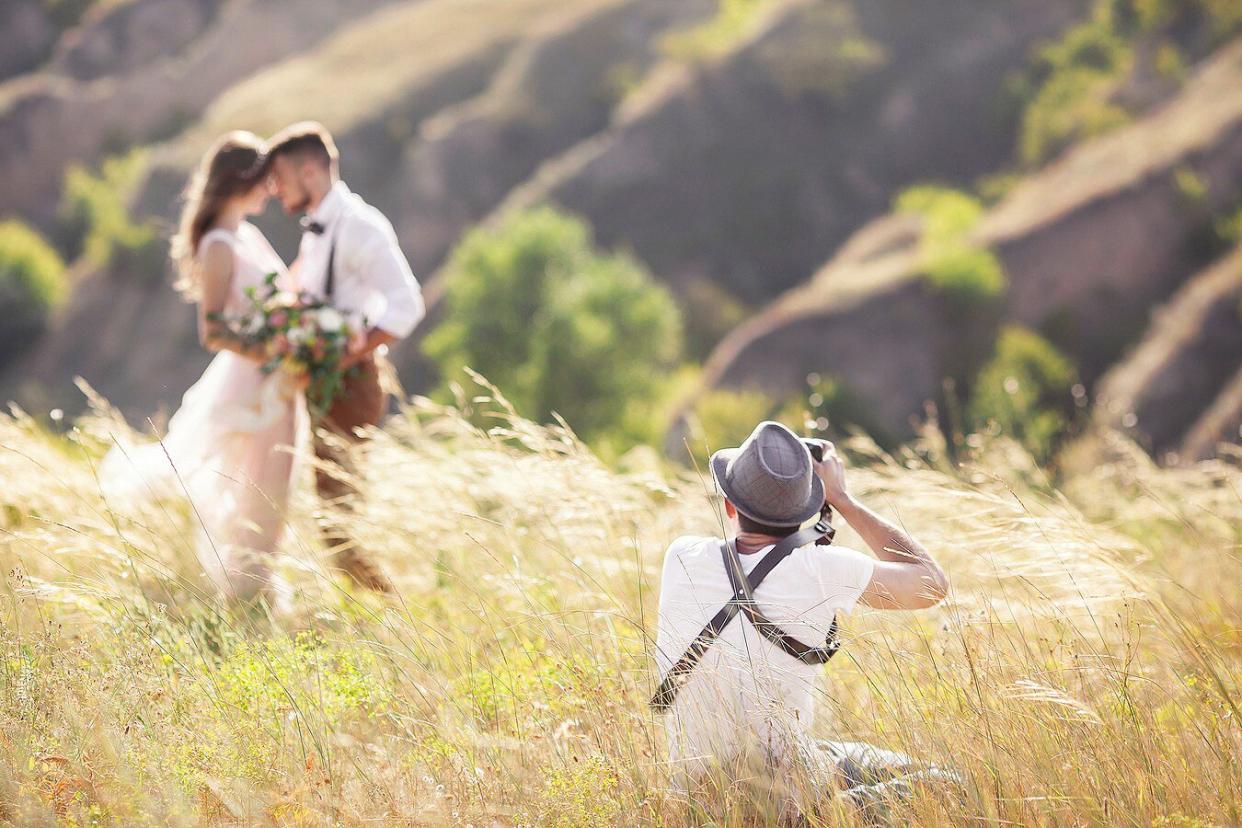Five Things Your Videographer Doesn't Want You to Do on the Wedding Day

Erstudiostok
If you're hiring a videographer for your wedding day, it's because you want to be able to look back on this special celebration in real time for years to come. It's an important job, and in order to ensure your videographer can beautifully capture this momentous day, they need to be given the right tools. To help make sure you and your videographer are on the same page, we're sharing six things these pros wish their couples wouldn't do on the wedding day. Heed this advice and you'll be well on your way to being one of their very best clients to date.
Related: Things You Should Know Before Booking a Wedding Videographer
Don't Give One Vendor Absolute Power Over the Schedule
Even if you're hiring a wedding planner, it's important to ask each vendor to weigh in on the final day-of schedule. Otherwise, the time each vendor needs—from the photographer and videographer to the makeup artist and hairstylist—may not be accurately prioritized. "If the couple (or wedding planner) doesn't provide, communicate, and enforce a schedule for the day of the wedding, the job tends to land on the photographer," says Rachel Jo Silver, founder and CEO of Love Stories TV. While it's perfectly fine for the photographer to craft the schedule, you'll want to ensure the videographer has enough time to get their shots, too.
And Don't Forget to Share That Schedule with Everyone Involved
Once that schedule is finalized, be sure to share a copy with each and every one of your vendors. This will help avoid any confusion on the wedding day and will enable everyone to do their best job possible. And while most wedding vendors will stick to the schedule as it's written, if you're not working with a wedding planner, it's a good idea to ask a trusted member of the bridal party to keep an eye on the time to ensure things are progressing as they should be.
Don't Forget to Connect Your Videographer to Key Vendors
Silver suggests virtually introducing the photographer and videographer ahead of the wedding. This, she says, informs your team that both photo and video are of equal importance to you, and it gives them an opportunity to plan together. Most photographers and videographers work wonderfully together, but paving the way for a smooth introduction never hurts.
The same goes with your wedding venue's coordinator. "Some religious ceremony venues prohibit the use of audio recording equipment, which can cause huge issues for your videographer," Silver explains. To avoid any hangups before the wedding, she suggests connecting the venue's coordinator with your videographer so that they can go through any important details and make special preparations.
Don't Meet Your Videographer for the First Time on the Wedding Day
"When the videographer is hired by, and has been in contact with, only one half of the couple (or just the mother-of-the bride or the planner), they sometimes don't even meet the bride or groom until the wedding day," Silver says. This can lead to uneven expectations between the videographer and the couple, she warns. If you're not able to meet in person, set up time for a phone call or video chat so you can get familiar with each other and share what you're looking for in terms of a final video.
Don't Be Unwilling to Collaborate (or Let Your Bridal Party Get Away with It)
"If one (or both members) of the couple don't want to participate in the way the videographer needs them to (certain shots, getting read with bridal party, and so forth), this can negatively impact the video and the videographer is on the hook," Silver explains. The same goes for your bridal party. Share your expectations with everyone, and remind them the footage captured is something you'll cherish for a lifetime. Ultimately, your videographer is trying to guide everyone towards the best possible footage, so encourage your entire group to collaborate with this pro as he or she asks.

